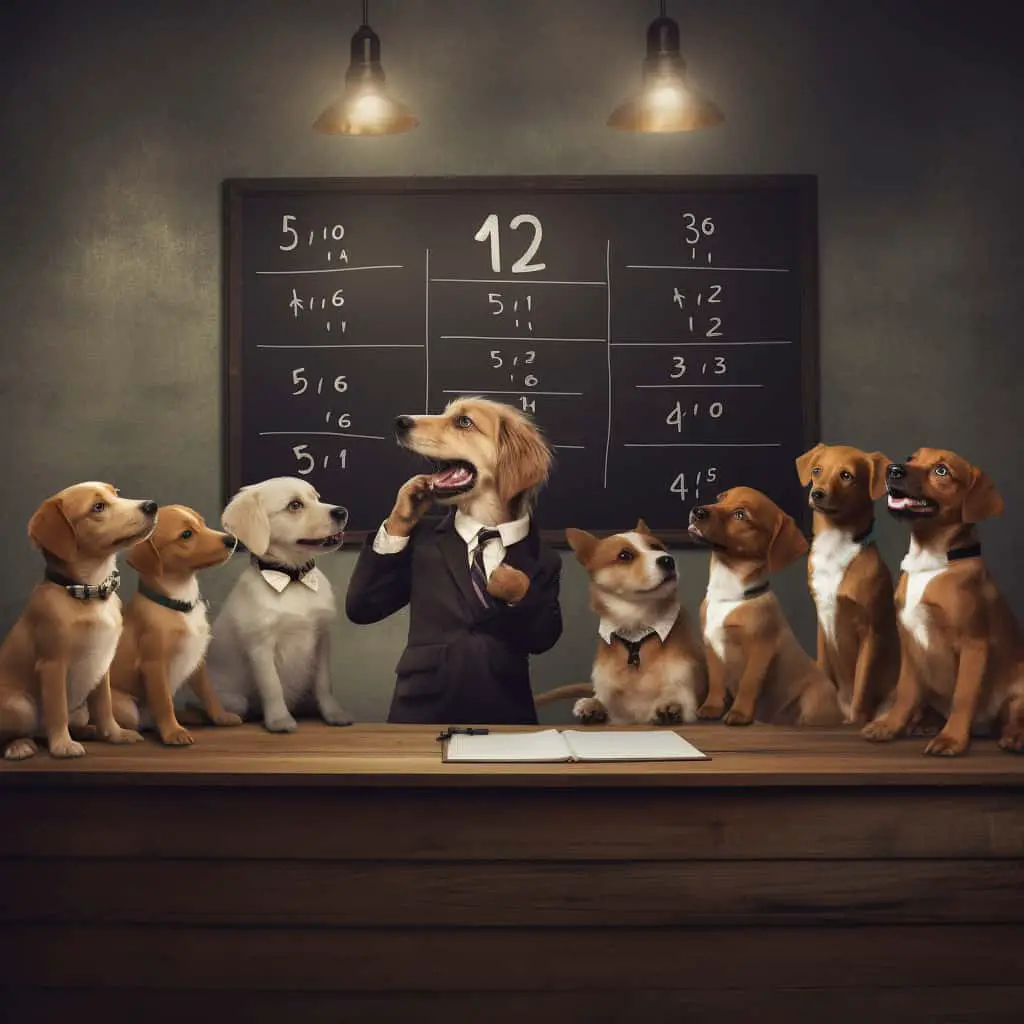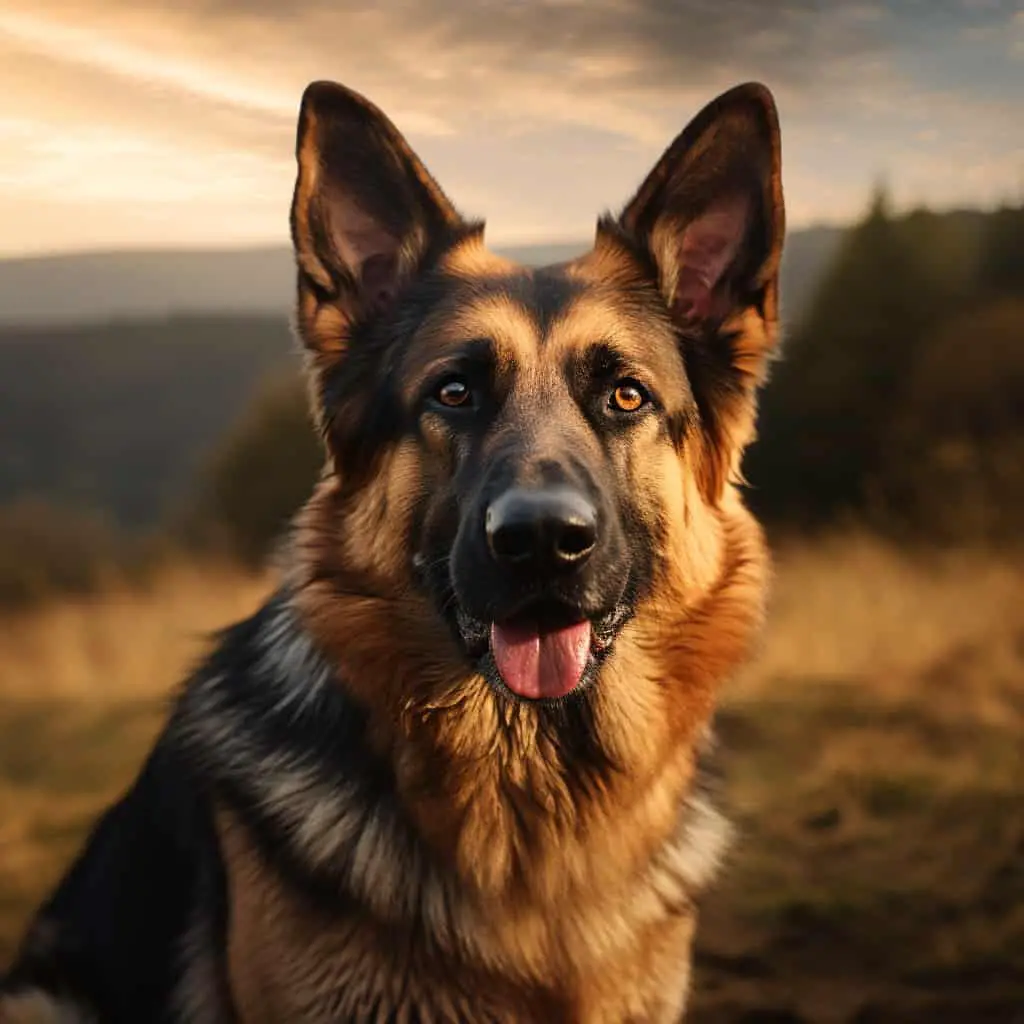The mysteries surrounding a bear dog size are about to be unveiled in this section. We will provide a brief explanation and context of this fascinating topic, diving into the depths of this enigmatic creature.
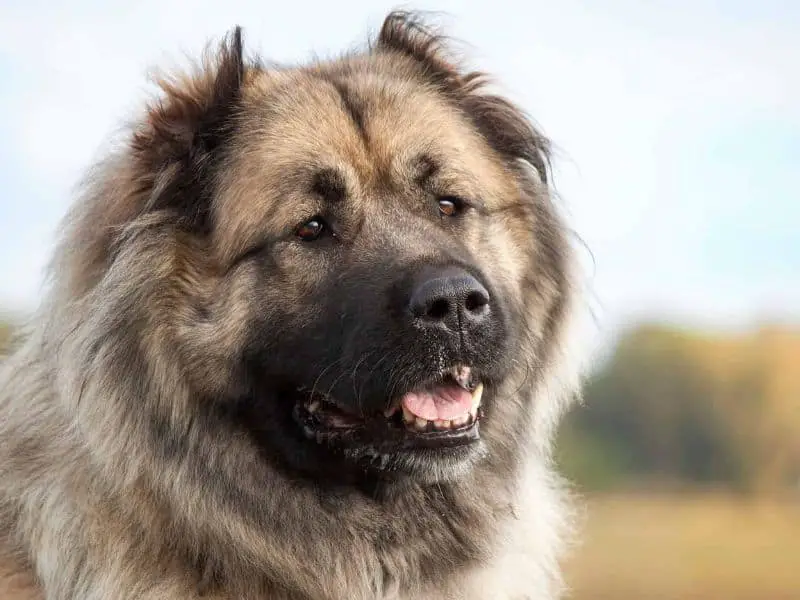
Get ready to discover the remarkable facts and fascinating tales surrounding bear dogs’ size and proportions.
The Russian Bear Dog–also known as the Caucasian Ovcharka–is an impressive breed. They have a double coat and a muscular body. But, their temperament is what stands out.
They are naturally protective and loyal to their owners. Plus, they are intelligent and can be trained for various settings.
However, they may have health issues like hip dysplasia and obesity. So, regular grooming and socialization are important. Exercise and mental stimulation are essential too.
These dogs have been featured in movies and TV shows. But, they are still not widely known. If you are considering getting one, you must be able to provide the necessary care and training.
To sum it up, the Russian Bear Dog is an amazing breed. They can be great working or companion animals when given the right care and training.
The Russian Bear Dog Size Breed: A Brief Overview
The Russian Bear Dog, known for its impressive size and undeniable presence, is the subject of our focus. In this brief overview, we will explore its origin, background, and distinct physical characteristics.
Prepare to be amazed by the intriguing facts and fascinating details that illuminate this remarkable breed‘s mysteries.
Origin and Background
The Russian Bear Dog is remarkable! Its roots trace back to the Caucasus Mountains in Russia. It was developed for centuries to protect livestock from predators and intruders. The harsh environment and the needs of local shepherds influenced its ancestors.
This giant breed typically weighs 100-200 pounds and stands 25-30 inches tall at the shoulder. It has a thick double coat that provides insulation. It’s also fiercely loyal and protective of its family and territory.
These dogs are intelligent and capable of quick thinking and problem-solving. But, they need proper training and socialization to differentiate between threats and ordinary situations.
They’re prone to health issues such as hip dysplasia, obesity, and bloat due to their large size. Regular vet check-ups and a balanced diet are essential.
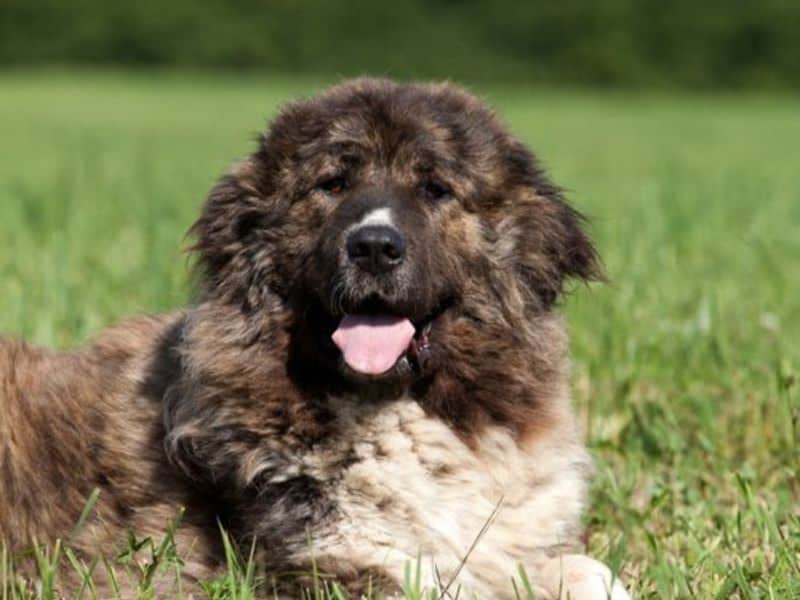
Early socialization is important so your Russian Bear Dog can handle different situations confidently. Exercise is also essential to keep them mentally stimulated and physically fit.
Before owning a Russian Bear Dog, consider factors like space, time commitment, and ability to provide proper care.
Physical Characteristics
The Russian Bear Dog has distinct physical characteristics. It has a large, powerful build with males typically weighing 110-170 pounds and standing 25-30 inches at the shoulder. Its thick double coat can be white, gray, or tan. Its broad head and wide-set eyes give it a strong presence.
These traits can be seen in the following table:
| Physical Characteristics | |
|---|---|
| Size | Large |
| Weight (Males) | 110-170 pounds |
| Height (at shoulder) | 25-30 inches |
| Coat | Thick double coat |
| Colors | White, gray, tan |
| Head | Broad |
| Eyes | Wide-set |
The Russian Bear Dog is great in cold weather due to its thick double coat. It can also handle extreme weather conditions. Furthermore, there is an inspiring story about Boris, a Russian Bear Dog.
One night, he protected his family from a wild animal, showing his strength and loyalty. This showcases the physical power and dedication of the Russian Bear Dog.
Temperament and Training
Temperament and training play a crucial role in understanding the mysteries of how big a bear dog can get.
From their natural protective instinct to their affectionate and loyal nature, and even their intelligence and training capabilities, these aspects unveil fascinating insights into the behavior of bear dogs.
By exploring these sub-sections, we can gain a deeper understanding of the unique characteristics that shape the temperament and training of these remarkable animals.
Natural Protective Instinct
Russian Bear Dogs are famous for their natural protective instinct. They stay alert and guard their family and territory. Breeders bred them to protect livestock in the Russian mountains. This breed is fiercely loyal and will defend their loved ones if they sense any danger.
Their gentle disposition towards their own family members sets them apart. Early socialization and training is necessary to channel their protective instincts. Owners should expose them to people, situations, and environments from a young age.
Russian Bear Dogs are intelligent and can quickly learn obedience commands.
Regular mental stimulation through interactive playtime and training sessions is important. Establish boundaries and rules to help them understand what is expected. Expect lots of love and loyalty from your Russian Bear Dog. They are all about affection and devotion.
Affectionate and Loyal
Russian Bear Dogs are renowned for their extraordinary love and loyalty towards their owners. They form strong emotional connections with their family, often becoming deeply attached.
This is because of their natural protection instincts and the close ties they have with their human companions. Russian Bear Dogs are devoted to their families and will do whatever it takes to protect and care for them.
These dogs show their affection in various ways. For example, they may lean against their owners for physical contact or follow them around the house.
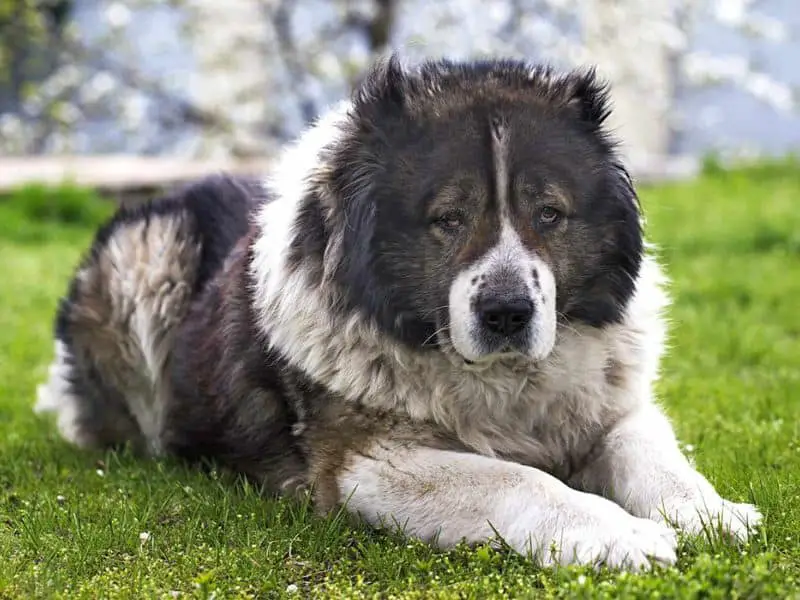
They need human interaction, and they’re happiest when spending time with their loved ones. This breed is known for being gentle and loving, making them suitable pets for all kinds of households.
In addition to being loving, Russian Bear Dogs are incredibly faithful. They are known for their unceasing commitment and loyalty to their owners.
This loyalty is due to their strong protective instincts, which make them willing to defend their family at all costs. Whether protecting their family home or standing by their owner’s side in tough times, these dogs demonstrate time and again that they are dependable friends.
Plus, Russian Bear Dogs also show loyalty to other animals in the home, often forming close relationships with them too. They have a caring nature that goes beyond humans, making them brilliant additions to multi-pet homes.
If you’re considering bringing a Russian Bear Dog into your family, prepare for a lifetime of loyalty and love. These amazing animals will be there for you in good times and bad, providing unwavering help and companionship.
Don’t miss out on the chance to experience the strong love and fidelity that comes with owning a Russian Bear Dog. Be aware of their intelligence, or else you’ll have a 100-pound fluffball outsmarting you at hide-and-seek!
Intelligence and Training
Russian Bear Dogs are renowned for their intelligence and trainability. They are also loyal, protective and affectionate, making them amazing companions.
These dogs learn quickly due to their desire to please their owners. To train one successfully, consistent methods, positive reinforcement, and clear communication are essential.
These pooches have other special qualities, making them suitable for search and rescue or therapy work.
To effectively train a Russian Bear Dog:
- Positive reinforcement, such as treats and praise, should be used.
- Strict rules and boundaries should be established.
- Provide mental stimulation with interactive toys and puzzle games.
- Consider enrolling in obedience classes or working with a professional trainer.
By understanding the intelligence and training needs of a Russian Bear Dog, potential owners can care for their giant, fluffy protector and reap the rewards.
Health and Care
When it comes to the health and care of bear dogs, knowledge is power. This section will delve into the common health issues that can affect these magnificent creatures and the essential maintenance and grooming practices to ensure their well-being.
Get ready to unlock the secrets of keeping your bear dog in optimal health and learn valuable strategies for their care.
Common Health Issues
Russian Bear Dogs may have certain health concerns. Owners should be informed about these issues as they can differ in seriousness and affect the pup’s well-being.
- Hip and Elbow Dysplasia: These are genetic joint conditions which can cause pain, discomfort, and mobility issues.
- Bloat: Stomach fills up with gas or fluids. It can rotate and cause life-threatening issues if not treated.
- Eye Problems: Cataracts, progressive retinal atrophy, and entropion. Veterinary eye checks are necessary.
- Heart Disease: Dilated cardiomyopathy. Need regular check-ups and tests.
Not all Russian Bear Dogs will have these health issues. Knowing them can help owners take preventive steps or get medical help.
Maintenance and Grooming
Maintaining and grooming your Russian Bear Dog is essential to their overall health and well-being. Regular brushing of their thick double coat is a must to prevent tangles and remove loose fur.
Trim their nails regularly and keep a watchful eye on their paw size. Clean their ears and brush their teeth regularly for good hygiene.
Professional visits with an experienced groomer are ideal for specialized services such as bathing and trimming excessive hair. Providing proper maintenance and grooming is essential for your Russian Bear Dog to look and feel their best. So, don’t forget to give them the care they deserve!
Socialization and Exercise
Socialization and exercise play a vital role in the development and well-being of a bear dog. Understanding the importance of socialization and mental stimulation is crucial for owners.
This section will delve into the benefits of proper socialization and regular exercise to a bear dog, ensuring their physical and mental health. Prepare to uncover the secrets to raising a well-rounded and happy bear dog.
Importance of Socialization
Socialization has a huge effect on Russian Bear Dogs. It helps them understand how to interact with other animals and people gently and calmly.
Additionally, socialization prevents fear-based aggression, anxiety, and nervous behavior. For best results, owners should introduce their dogs to different environments, sounds, and experiences from an early age.
Russian Bear Dogs are very smart and loyal. Socialization helps them build trust and confidence, which is essential for their health. When properly socialized, they will be friendly with strangers, making them perfect for family homes or public places.
Also, socializing them with other animals, like cats or smaller pets, can help prevent conflicts due to their prey drive.
Socialization should not be limited to people and animals. Things like walking on different surfaces and experiencing different types of transportation can help the dog adjust to different scenarios. Regular positive exposure will help them become well-rounded members of society.
A happy, well-socialized Russian Bear Dog will make a happy owner who can sleep through the night!
Exercise and Mental Stimulation
Exercise and mental stimulation are essential for caring for Russian Bear Dogs. They require physical activity to stay healthy and prevent boredom. Long walks or runs help maintain fitness and burn off energy.
Mental challenges are equally important. Intelligent dogs need mental tasks to prevent destructive behavior. For more information on how to care for Karelian Bear Dogs, unveil the mysteries of how big they can get.
Russian Bear Dogs have high energy levels and strong instincts. Without enough exercise and stimulation, they can have behavioral issues. Puzzle toys or obedience training can help.
Socialization is also important. They need human and animal interaction. Visits to dog parks, playdates with other dogs, or obedience classes are good options. Socialization helps their mental well-being and safety around others.
The Russian Bear Dog’s history explains its needs. They were bred as working dogs in Russia, guarding livestock in the Caucasus Mountains. To do their job, they needed to be physically fit.
Owners can ensure a happy and balanced dog by understanding the Russian Bear Dog and providing exercise, mental challenges, and socialization. This also strengthens the bond between humans and dogs.
Russian Bear Dogs in Popular Culture
Russian Bear Dogs, also known as Caucasian Shepherds, have gained fame due to their impressive size and distinct traits. These majestic creatures from Russia have lured many. They appear in many forms of media, including:
- 1. Movies and TV Shows – Russian Bear Dogs show their strength and might as guard dogs or loyal companions, adding grandeur to the screen.
- 2. Books and Literature – Russian Bear Dogs grace the pages of books and literature, highlighting their protective nature and noble characteristics.
- 3. Art and Illustrations – Artists and illustrators use Russian Bear Dogs as captivating subjects for art forms due to their massive size, thick fur, and powerful features.
- 4. Social Media and Internet Culture – Russian Bear Dogs have become viral sensations on social media, showcasing their size and unique temperament.
- 5. Merchandise and Collectibles – Russian Bear Dogs are popular subjects for merchandise and collectibles, symbolizing strength and loyalty.
- 6. Dog Shows and Exhibitions – Russian Bear Dogs participate in dog shows and exhibitions, showcasing their impressive size and striking appearance.
People adore their regal nature and sense of protection. Their fame in popular culture reflects society’s fascination with them and their role as symbols of bravery.
Boris, a famous Russian Bear Dog, became renowned for saving his family from danger. His size and presence scared away the intruder, proving their protective nature.
Deciding to Adopt or Purchase a Russian Bear Dog
Adopting or buying a Russian Bear Dog is a big decision. They can get quite big, so it’s important to consider if you have enough space. Reference data can help you understand the expected size of these dogs.
Males are usually 28 to 32 inches tall at the shoulder and weigh 110 to 170 pounds. Females are smaller, measuring 26 to 30 inches tall and weighing 99 to 140 pounds.
Not only are they large, but they also have protective instincts. They are loyal and loving with their family but can be quiet and distant with strangers. Training and socializing them is important to ensure they are well-behaved.
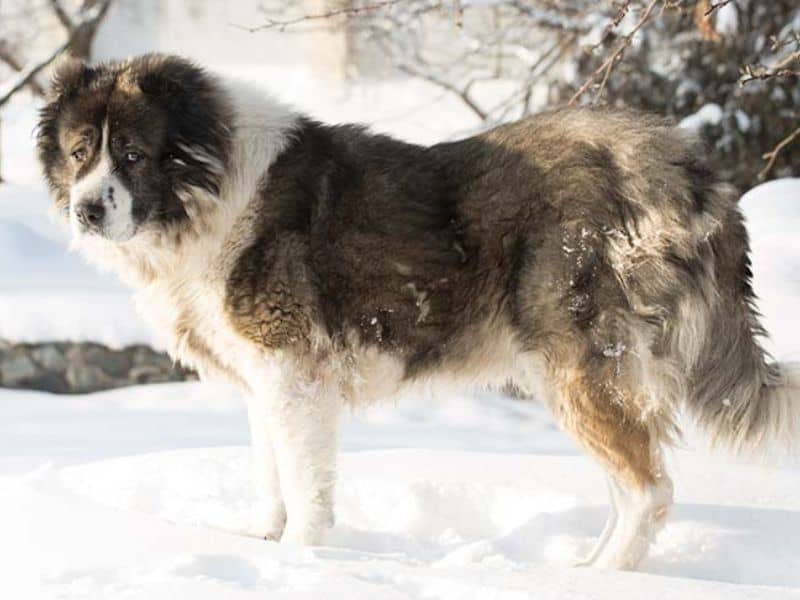
Russian Bear Dogs need plenty of room and daily exercise. They also need grooming to keep their coat in good condition.
Meeting and interacting with Russian Bear Dogs is important to make the best choice. Research reputable breeders or contact rescue organizations to learn more. Consider all the factors before adopting or purchasing a Russian Bear Dog.
Points discussed regarding these bear dog size breeds
In the conclusion, we recap the key points discussed throughout the article, shedding light on the mysteries surrounding the size of a bear dog.
The article offers a comprehensive look into the Russian Bear Dog, such as its origin, physical traits, temperament, training, health care, socialization, exercise, and its representation in popular culture.
Origin and history of the Russian Bear Dog are discussed. Furthermore, its size and looks are described.
The natural protective instinct of the Russian Bear Dog is highlighted, alongside its affectionate and loyal nature. Training them requires effort due to their intelligence.
The article also covers common health issues, maintenance and grooming needs, socialization for a well-rounded personality, and exercise and mental stimulation for its well-being.
Popular culture’s portrayal of the Russian Bear Dog is briefly mentioned, along with important considerations when deciding to adopt or purchase one.
Lastly, the article summarized the key points discussed without explicitly stating it. Overall, the article provides valuable information about Russian Bear Dogs to help readers understand their characteristics and needs before making a decision about owning one.
How Big Does a Bear Dog Get?
- The Russian Bear Dog, also known as the Caucasian Shepherd Dog, is a large and protective breed that can weigh up to 200 pounds.
- Russian Bear Dogs have a thick double coat that provides protection in harsh weather conditions.
- This breed is not recommended for homes with young children and requires experienced owners and extensive training.
- Russian Bear Dogs have a natural protective instinct and can be wary of strangers and other dogs if not properly socialized.
- The breed is generally healthy but can be prone to hip and elbow dysplasia, cataracts, and obesity.
